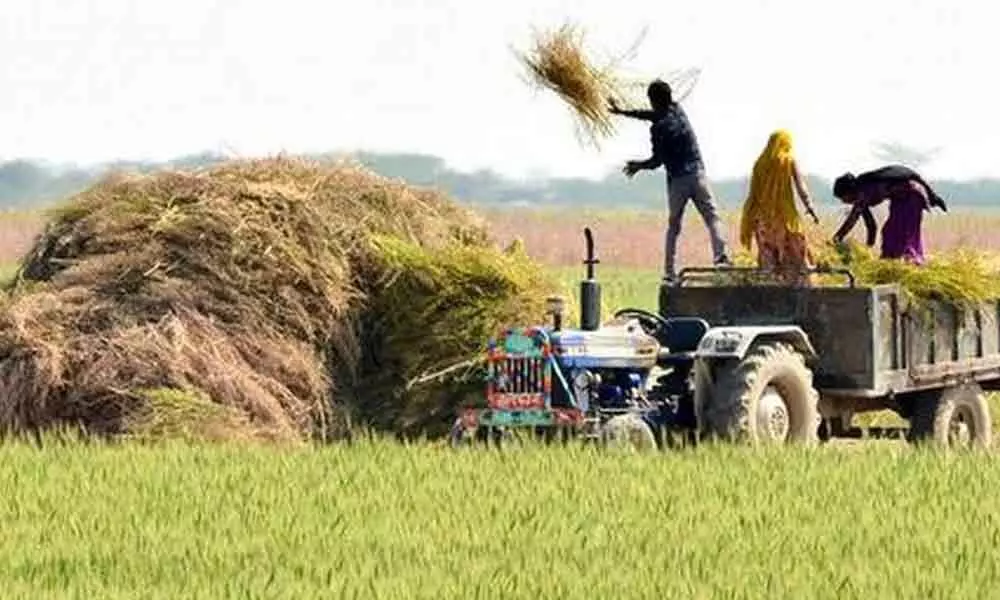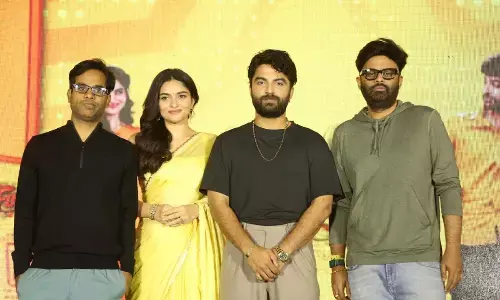My tryst with agriculture management

Although I started my stint in the agriculture sector with a good deal of initial reluctance, I soon started enjoying the experience. Agriculture is indeed a complex subject. There is physics and chemistry in the soil, botany in the plants, zoology in the treatment of pests and diseases, engineering in warehousing, and one needs a knowledge of economics to study and understand the market! One needs to know enough of the subject to be able to move with confidence with the experts one deals with. On the other hand, one should guard against acquiring knowledge of such depth that one gets bogged down in technical issues at the expense of administrative soundness. That appeared to be the secret of successful leadership
Both in my academic career as well as in my service as a civil servant, I often wanted one thing when I was given something else. It is a matter of great consolation, of course, that I always enjoyed what I eventually got. I was a devoted aficionado of the subject of chemistry as a school student but had to join an honours course in Mathematics in Delhi University as it was a question of grabbing whatever was offered first. When I returned to Osmania University to pursue studies for a post graduate degree, I was, again, refused admission for M Sc Chemistry, as mathematics had been my main subject earlier in Delhi. Eventually, however, I not only achieved some modest distinction but also continue to have a deep and abiding interest in the subject till today.
And in service, the one subject that held a little appeal for me was cooperation and I ended up being the Registrar of Cooperative Societies, for the longest stint in my career! Thanks to the then Chief Minister of Andhra Pradesh N T Rama Rao, who had some special trick up his political sleeve, at that time, wanted me there. Later on, I once had a long discussion with NTR (although I was no longer in his office by then), about various postings of senior officials. And while all the other postings went through, I drew the Excise department, having asked for Agriculture! Destiny to the fore once again!
From the time of my days in cooperation, however, I continued to have a direct or indirect relationship with the subject of agriculture until my retirement.
All IAS officers have an opportunity to serve in the government of India. In a majority of cases, that happens after the officers have reached the level of a Joint Secretary (JS), in the Central government. Personally, I have always held the view that a stint in the government of India is a must. The system there is 'officer -oriented', unlike in the States where it is 'office- oriented'. The level of the JS is, in a manner of speaking, the 'top of the bottom' and the 'bottom of the top'! JS cannot only represent his Ministry in a meeting in the Prime Minister's Office, but also deal with an assistant at the lowest rung of the administrative hierarchy.
I had opted for deputation to the government of India in 1994, partly, perhaps, on the rebound, following the somewhat lukewarm treatment I got in Chief Minister Vijaya Bhaskara Reddy's regime. Beyond agreeing to my name being an offer, I did little else to push my case.
It was about that time that, thanks to the intervention of my good friend P V R K Prasad ('PVRK', then serving as the Information Advisor to the Prime Minister of India), I had an opportunity to visit Israel as a part of an official team, (the first delegation, in fact, after 1948, following resumption of diplomatic ties with that country), headed by Chief Minister of Maharashtra State, Sharad Pawar. It was a truly exciting visit and I came back wide -eyed with all sorts of grand ideas about what could be achieved in the agriculture sector of the State!
While this was so, one day, J C Pant, then Additional Secretary (AS) in the Ministry of Agriculture of the government of India, came home for dinner. I casually mentioned to him that my name was being circulated for a posting in Delhi. Though he received the information noncommittally at that time, he acted promptly upon returning to Delhi. A few days later, I got a call from him informing me that my name was being suggested for a posting in the Agriculture Ministry (he had, by that time, become the Secretary of that Ministry). He, in fact, went to the extent of suggesting that perhaps people might need to be 'spoken to', as he put it.
I rang up PVRK and apprised him of the position. I was secretly hoping that he might, perhaps, be able to swing a change in the posting! In fairness to Prasad, he did have a word with the Prime Minister and called me back. But what he told me was that the PM said "let Mohan come here first. Then we will see."
While matters rested at that stage, there was a severe cyclone in the State and Balram Jakhar, the Union Minister of Agriculture, came for an aerial survey of the affected areas. He was accompanied by B K Taimni, Additional Secretary and my course mate (though he was four years senior to me in service by virtue of his earlier service in the Indian Army). I had gone to the airport to receive them and Taimni introduced me to Jakhar. A few days later I came to know that my name had been approved for a posting in the Agriculture Ministry. The hand of fate again!
Although I started my stint in the agriculture sector with a good deal of initial reluctance, I soon started enjoying the experience. Agriculture is indeed a complex subject. There is physics and chemistry in the soil, botany in the plants, zoology in the treatment of pests and diseases, engineering in warehousing, and one needs a knowledge of economics to study and understand the market! Elsewhere in this column earlier, I have dealt with the status of the agriculture sector, the problems it is facing, and my own prescription for dealing with the challenge of ensuring sustainable growth and development in the future.
During my tenure in the Ministry at different levels including those of JS, AS and Special Secretary, I realised the special role that a civil servant could play in a technical Ministry such as Agriculture. One needs to know enough of the subject to be able to move with confidence with the experts one deals with. On the other hand, one should guard against acquiring knowledge of such depth that one gets bogged down in technical issues at the expense of administrative soundness. That appeared to be the secret of successful leadership.
(To be continued on next Thursday)
(The writer is former Chief Secretary, Government of Andhra Pradesh)








